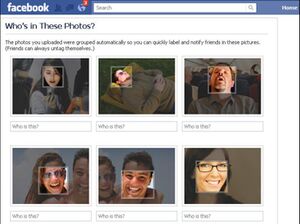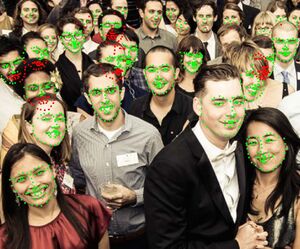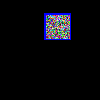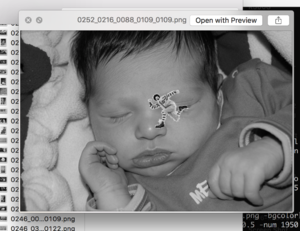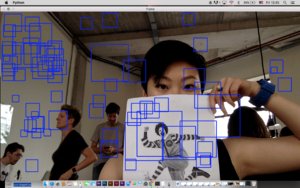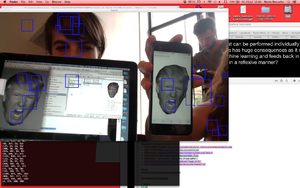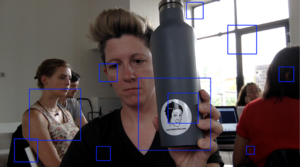Networked Labor: Difference between revisions
No edit summary |
No edit summary |
||
| (13 intermediate revisions by 3 users not shown) | |||
| Line 1: | Line 1: | ||
{{ | {{Event | ||
|Name=Networked Labor | |Name=Networked Labor | ||
|Location=De PUNT | |Location=De PUNT | ||
|Date=2016/07/28-2016/07/29 | |Date=2016/07/28-2016/07/29 | ||
|Time=10:00-18:00 | |Time=10:00-18:00 | ||
|PeopleOrganisations=Michael Murtaugh,Nicolas Malevé | |PeopleOrganisations=Michael Murtaugh, Nicolas Malevé | ||
|Type= | |Type=HDSA2016 | ||
|Web=Yes | |Web=Yes | ||
|Print=Yes | |Print=Yes | ||
}} | }} | ||
Workshop by [[Michael Murtaugh]] and [[Nicolas Malevé]] during [[HDSA 2016. If you are so smart why are you so poor|HDSA2016]] | |||
The point of departure of the Networked Labor was the connection between a certain form of networked labor and the kind of software and collective intelligence that is currently developed. A concrete example is how Amazon Mechanical Turk workers are contributing to machine learning. Millions of manual annotations are necessary for a state of the art algorithm to learn. Without such a massive effort, such a technique would be pointless. However, to collect such an amount of training data would be much too costly if workers were hired under traditional labor conditions. <br> | |||
AMT provides a mechanism of blunt exploitation, - the task is paid a few cents, and of extreme mechanization, - workers are responding to api calls. <br><br> | |||
[[File:Post-Screen-Retinas-Routines-10-06-2016-001.pdf-6.jpg|thumb|]]<br> | |||
From presentation: Retinas' Routines<br> | |||
[[File:Post-Screen-Retinas-Routines-10-06-2016-001.pdf-14.jpg|thumb|]]<br> | |||
From presentation: Retinas' Routines<br> | |||
[[File:Post-Screen-Retinas-Routines-10-06-2016-001.pdf-16.jpg|thumb|]]<br> | |||
From presentation: Retinas' Routines<br> | |||
Participants of the Hackers & Designers Summer Academy were invited to map out the different economical processes at play in the creation of a machine learning algorithm, to unfold the networks of people, machines and resources that are necessary for it to operate, and test various alternative scenarios. How can we learn and work together?<br><br> | |||
various alternative scenarios. How can we learn and work together?<br><br> | |||
Concretely, we | Concretely, we worked at different levels and between technical experimentation and more theoretical | ||
discussions.<br><br> | discussions.<br><br> | ||
* Discussion and reading group sessions: We | * Discussion and reading group sessions: We concentrated on various textual resources coming from economical analysis of platforms such as AMT, but also on the digital economy more largely. We spend time making close reading of machine learning source code and use the methods of machine learning in this context. Using algorithms to read and summarize texts about their own economy :-) <br> | ||
* Sessions on learning to train an algorithm: It is crucial to approach practically the training part of machine learning. What are the necessary resources in time, processing power, human workforce? But also to look at the details and how they make a difference in what is learned by the software. To engage practically with this part of the algorithmic process forces us to engage with the different communities involved and their tools.<br> | * Sessions on learning to train an algorithm: It is crucial to approach practically the training part of machine learning. What are the necessary resources in time, processing power, human workforce? But also to look at the details and how they make a difference in what is learned by the software. To engage practically with this part of the algorithmic process forces us to engage with the different communities involved and their tools.<br> | ||
* Choreography of gray labor: AMT is not just about cheap labor, it is also about the deconstruction of tasks in micro components that can be combined and monitored. It involves a choreography of speeds and attentions.<br> | * Choreography of gray labor: AMT is not just about cheap labor, it is also about the deconstruction of tasks in micro components that can be combined and monitored. It involves a choreography of speeds and attentions.<br> | ||
Dividing a task in discrete units of work that can be performed individually is like writing an algorithm, but also like writing a score. This has huge consequences as it defines the kind of perception and intelligence that feeds machine learning and feeds back in our devices and systems. How can we perform such tasks in a reflexive manner? <br><br> | |||
Face training excercises: | |||
[[File:Face-James.png|thumb|]]<br> | |||
Neural face training <br> | |||
[[File:Ronald-3.png|thumb|]]<br> | |||
Face training <br> | |||
[[File:Ronald-4.png|thumb|]]<br> | |||
Face recognition <br> | |||
[[File:Trumpface.png|thumb|]]<br> | |||
Trump training <br> | |||
[[File:Beth-facetraining.png|thumb|]]<br> | |||
Face training <br> | |||
[[File:Nina-smile-training.png|thumb|]]<br> | |||
Smile recognition <br> | |||
<embedvideo service="youtube">https://www.youtube.com/watch?v=9qdk2iJj5zE</embedvideo> | |||
< | |||
Notes, references and code bits from the workshop here: | |||
<eplite src="https://etherpad.hackersanddesigners.nl/p/" id="networkedlabor" height="1000px" width="1000px" /> | |||
Latest revision as of 20:38, 9 January 2020
| Networked Labor | |
|---|---|
| Name | Networked Labor |
| Location | De PUNT |
| Date | 2016/07/28-2016/07/29 |
| Time | 10:00-18:00 |
| PeopleOrganisations | Michael Murtaugh, Nicolas Malevé |
| Type | HDSA2016 |
| Web | Yes |
| Yes | |
Workshop by Michael Murtaugh and Nicolas Malevé during HDSA2016
The point of departure of the Networked Labor was the connection between a certain form of networked labor and the kind of software and collective intelligence that is currently developed. A concrete example is how Amazon Mechanical Turk workers are contributing to machine learning. Millions of manual annotations are necessary for a state of the art algorithm to learn. Without such a massive effort, such a technique would be pointless. However, to collect such an amount of training data would be much too costly if workers were hired under traditional labor conditions.
AMT provides a mechanism of blunt exploitation, - the task is paid a few cents, and of extreme mechanization, - workers are responding to api calls.
From presentation: Retinas' Routines
From presentation: Retinas' Routines
From presentation: Retinas' Routines
Participants of the Hackers & Designers Summer Academy were invited to map out the different economical processes at play in the creation of a machine learning algorithm, to unfold the networks of people, machines and resources that are necessary for it to operate, and test various alternative scenarios. How can we learn and work together?
Concretely, we worked at different levels and between technical experimentation and more theoretical
discussions.
- Discussion and reading group sessions: We concentrated on various textual resources coming from economical analysis of platforms such as AMT, but also on the digital economy more largely. We spend time making close reading of machine learning source code and use the methods of machine learning in this context. Using algorithms to read and summarize texts about their own economy :-)
- Sessions on learning to train an algorithm: It is crucial to approach practically the training part of machine learning. What are the necessary resources in time, processing power, human workforce? But also to look at the details and how they make a difference in what is learned by the software. To engage practically with this part of the algorithmic process forces us to engage with the different communities involved and their tools.
- Choreography of gray labor: AMT is not just about cheap labor, it is also about the deconstruction of tasks in micro components that can be combined and monitored. It involves a choreography of speeds and attentions.
Dividing a task in discrete units of work that can be performed individually is like writing an algorithm, but also like writing a score. This has huge consequences as it defines the kind of perception and intelligence that feeds machine learning and feeds back in our devices and systems. How can we perform such tasks in a reflexive manner?
Face training excercises:
Neural face training
Face training
Face recognition
Trump training
Face training
Smile recognition
Notes, references and code bits from the workshop here:
<eplite src="https://etherpad.hackersanddesigners.nl/p/" id="networkedlabor" height="1000px" width="1000px" />
